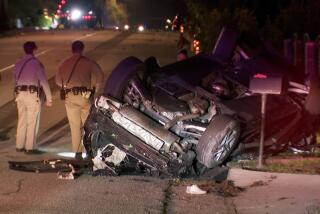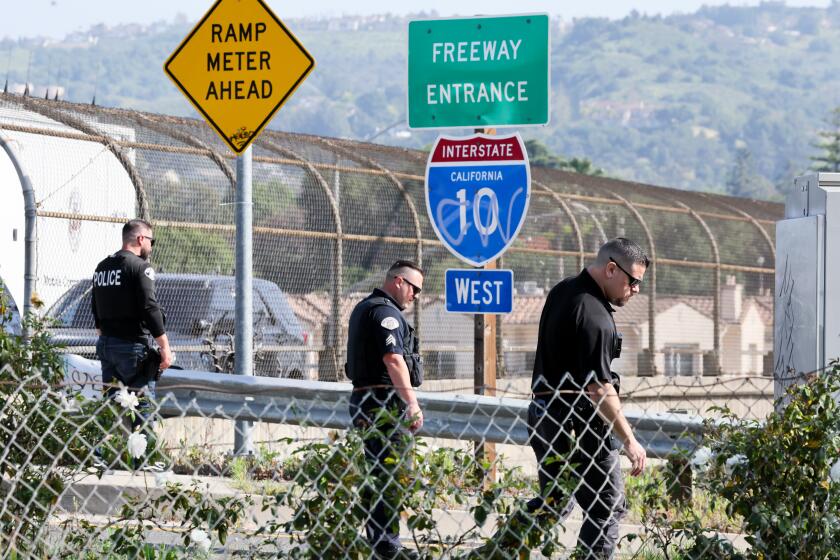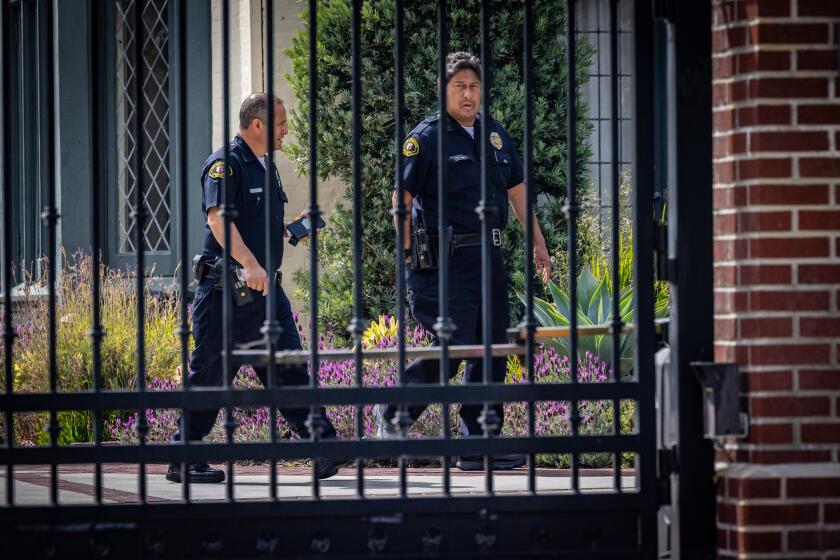Paul Walker’s Porsche Carrera GT known for speed, difficult handling
The limited-production, high-powered 2005 Porsche Carrera GT involved in the fiery weekend crash that killed actor Paul Walker and his friend Roger Rodas has a history of being difficult to control.
The sports car is capable of reaching 100 mph in under seven seconds. It was built without the stability management system that most Porsche models are equipped with.
Tonight Show host Jay Leno, a veteran supercar driver, spun a Porsche Carrera GT at 180 to 190 mph at Talledega. “It was kind of like driving on ice,” Leno said on his Jay’s Garage website. Leno, however, praised the vehicle for its engine built for Le Mans and incredible gearbox.
The clearance on the $400,000 V-10 Porsche is very low, making it hard to drive on regular streets.
Jeremy Clarkson, co-host of BBC’s Top Gear television show, said during his review of the car: “You need to be awake to drive this fast. It really isn’t an easy car to control. The clutch is brutal, the power is savage and the handling ... you really are on a knife edge. But if you put in the effort boy, oh boy do you get the rewards.
“It is a phenomena -- mind-blowingly good. Make a mistake, it bites your head off.”
The car was the subject of a lawsuit after a 2005 crash that claimed the lives of two men at the California Speedway after they swerved into a concrete wall.
In 2006, Porsche contributed 8% of a $4.5-million settlement after owner Ben Keaton and his passenger, Corey Rudl, died. They swerved to avoid a collision with a slower-moving Ferrari that had entered the track, according to records and attorneys.
Rudl’s widow sued the track, Keaton’s estate and the car manufacturer in San Diego Superior Court. They settled without acknowledging any wrongdoing. Craig McClellan, the San Diego-based personal injury attorney representing Rudl’s widow, argued that Porsche was partly to blame for the crash because it knew the car had a history of oversteering problems during development and the company designed it without an electronic stability control system.
“It is a fairly stripped-down car designed for the race track,” McClellan said. The lawyer said the vehicle was among the supercars considered most difficult to drive. “This is race car without one of best modern electronic safety devices,” he said.
Unlike most Porsche models, McClellan alleged that the 2005 Carrera GT is not equipped with the Porsche Stability Management system. That system operates on constant inputs from the wheels, brakes and steering to a computer system.
“In the event of a sudden deviation, the computer reacts in milliseconds and adjusts the braking on individual wheels and allows the car to continue the course and not go off road,” McClellan said. “Speed doesn’t matter. It will correct you and it does corrective action in milliseconds.”
McClellan said he took the depositions of German engineers and one told him the system wouldn’t work because of the vibration of the car. He said eventually Porsche issued a statement saying the system was not needed because the car’s handling was so good.
A spokesman for Porsche, Calvin Kim, said the company is willing to cooperate in the Walker-Rodas death investigation. The company didn’t immediately respond to questions about McClellan’s claims.
Detectives have not determined what caused the crash, which occurred about 3:30 p.m. Saturday on Hercules Street in Santa Clarita, but a preliminary investigation indicates speed was a factor, sheriff’s officials said.
It has not been determined how fast Rodas was driving.
Friends have told authorities that the high-performance Porsche was not street racing at the time of the crash. And L.A. County sheriff’s officials say eyewitnesses did not see a second car.
ALSO:
ACLU sues Catholic bishops over view that abortion is evil
Paul Walker crash: Vin Diesel, ‘Fast and Furious’ cast speak
Paul Walker charity: ‘Fast and Furious’ actor ‘led by example’
Twitter: @lacrimes| Google+
More to Read
Start your day right
Sign up for Essential California for news, features and recommendations from the L.A. Times and beyond in your inbox six days a week.
You may occasionally receive promotional content from the Los Angeles Times.







